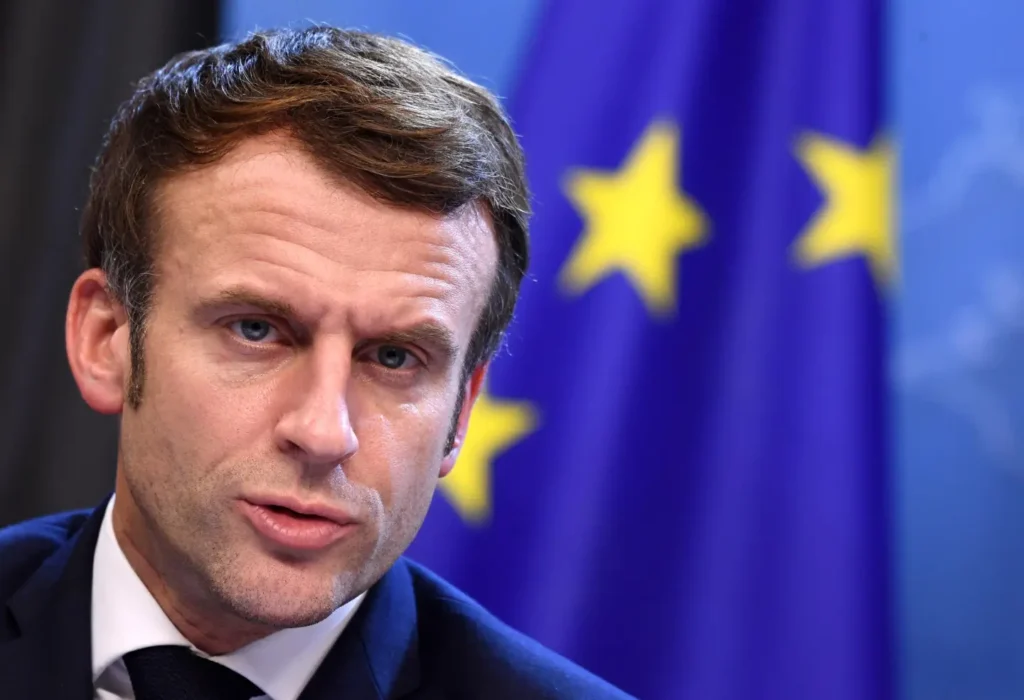ROME – After French President Emmanuel Macron recently announced a new bill that would allow assisted suicide for adults facing terminal illness, the country's bishops have pushed back against the bill and called for more access to palliative care. He emphasized the need for investment.
The French bishops, currently meeting in Lourdes for their spring synod, said in a statement on March 21: “We have great concern and deep concern regarding the proposed repeal bill.” expressed.
Noting that the Basilica of Mary in Lourdes is traditionally a place where the sick come to experience healing, the bishops expressed solidarity with the “most vulnerable” and said that every human life is “valueless.” The terms must be accompanied by respect and true fraternity.” ”
Earlier this month, President Macron announced that he would introduce a new bill to legalize “assisted dying'' for terminally ill patients and would submit a draft bill to Congress in May.
This marks a significant change for France, where life-ending measures are currently prohibited, while neighboring countries such as Switzerland, Belgium and the Netherlands have already adopted assisted dying measures in some cases. It is.
Pressure from the Catholic Church is one reason why France has so far been reluctant to draft legislation to allow assisted suicide. Mr Macron himself is a Catholic.
In 2016, France adopted the Claise-Leonetti method, which allows deep sedation upon request by palliative patients.
Macron said the new assisted dying bill would require people who want this option to meet certain conditions, including meeting a medical team who will assess the patient's situation and assess criteria.
This measure is only available to adults who have decision-making capacity and whose medical prognosis is terminal in the medium term, such as terminal cancer patients. President Macron said families could also appeal the decision.
In a statement, the French bishops noted that many citizens serve as caregivers for the sick and dying, and acknowledged the “dedication, ability and generosity” of those who dedicate their time and energy to caring for others. He expressed his gratitude.
“We reaffirm our attachment to the French way of rejecting induced death,” they said, calling for prioritizing palliative care instead, “our very fragile and much needed democracy. 's ideals are based on the founding prohibition of murder.'
Expressing their sympathy for all those suffering, they praised the progress already made in palliative care and said that further development in this field is needed, both quantitatively and qualitatively.
“All of this comes at a price that a democratic society like ours is honored to bear,” they said.
They also urged Catholics to become more involved in the lives of the elderly, dying, and disabled, saying that requests for assisted suicide and euthanasia are often associated with “feelings of loneliness and abandonment.” “It is a manifestation and we cannot and must respond to it.” Not resolved. ”
“The more we stand in solidarity with the most vulnerable, the further our country will advance on a new path of fraternity, justice, hope and peace,” they said.
In an age obsessed with youth and fearful of death and old age, fragile lives are “meaningless,” the bishops said, adding that “all lives, no matter how fragile, have a natural It must be respected until the end.”
“Amidst the prevalence of modern violence in our country and around the world, we call on all Christians and men and women of goodwill to become true servants of the lives of our brothers and sisters,” they said.
President Macron's announcement of a new end-of-life bill comes after France became the first country to enshrine abortion as a constitutional right earlier this month, and comes in the latest round of negotiations between the French bishops and the government. An argument ensued.
In a joint statement on March 20, European bishops joined other Christian churches on the continent in condemning how the Christian principles on which Europe was founded have been ignored or exploited for political gain. I lamented that there was.
Related: Europe must return to Christian roots, EU church argues ahead of June elections
They denounced what they said was a “crisis of values in the European region” and said that a significant proportion of EU citizens who see the future through the lens of Christian values ”have no opportunity to express their ideas”. “I feel left out right now because I don't have one.” Share positions and opinions in an autonomous and clear manner. ”
“We are also aware of the exclusion of appropriate references to Christian values in relevant EU documents,” they said, calling on European leaders and institutions to He called for more consistent, open and transparent dialogue with leaders, religious and non-confessional organizations. .
It also called for the promotion of Christian values in political planning and pre-election campaigns ahead of June's European Parliament elections.
The French bishops said in a statement that as Easter approaches, the Church and the world are remembering the triumph of love and life over suffering and feelings of abandonment.
“May the hope of this Easter light enlighten and encourage all our brethren and their representatives who stand at the threshold of a decisive debate for the present and future of our common humanity. ” they said.
Follow Elise Anne Allen on X: @eliseanallen


